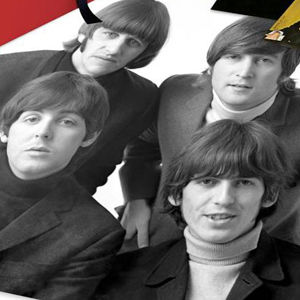
The Beatles
(Photo: Courtesy the artist)A few weeks ago an unfounded rumor scurried through New York’s music circle: DownBeat’s coverage was going to go 60 percent pop music and 40 percent jazz. Not a chance, the editor assures us. Where did such nonsense get started?
While it was still being rumored, I overheard a fellow saying that he wouldn’t mind so much reading about Tony Bennett or Andy Williams—but he certainly did not want to know about the Beatles.
Personally, I’d rather read about the Beatles, for the Beatles seem to me one of the most remarkable phenomena in popular music in the last 40 years—and among phenomena, popular music has had some doozies in the last 40 years. (Ah, there, Helen Kane and Bonnie Baker.)
For one thing, is it not curious that four young men from Liverpool, England, should be offering what is essentially a strident imitation of American Negro blues singing? Specifically, as Jim Delephant pointed out in Rhythm & Blues, isn’t it curious that they modeled themselves largely on the style of Chuck Berry with perhaps touches of Jimmy Reed? Not that there is anything wrong with Chuck Berry as far as I’m concerned, but what is it that makes four English boys want to sing that way? What hold does such a style have on them, and why?
And what is it that makes their audiences of primarily young girls scream in a kind of sustained frenzy, or sometimes go into a catatonic trance, when these four young Englishman perform? What are they responding to, and why?
And why is it that the same gossip columnists and Broadway types who found Elvis Presley contemptible or alarming seem to find the Beatles and their fans charmingly amusing.
In an article in the New York Times Magazine a few months ago, novelist David Dempsey suggested that the girls were responding to a kind of collective archetype—that the Beatles are a modern manifestation of Orpheus, and the girls were experiencing a kind of hypnotic bacchanal.
I have no doubt that they are responding to an archetype, and perhaps Dempsey has put his finger on the right one. But saying so seems to avoid as many questions as it answers. After all, today’s dowagers who panted over Bing Crosby in 1932 were experiencing in their way the same sort of collective archetypal response. And so were the girls who swooned for Frank Sinatra in the ’40s or those who shrieked for Presley in the ’50s.
What seems much more significant would be to find out more specifically what is going on in the soul of a generation that must scream constantly throughout a performance, blocking out any possibility of even hearing what they are presumably there to hear. Or to discover the reason there young men carry these somewhat effeminate hairdos. (One group of Beatles imitators now sports hair that is easily longer than Doris Day’s).
I’m sure that one can’t ask any of these questions without also asking why is it that a kind of enfrenzied version rhythm and blues has become the popular music for, by now, two generations of young people in many parts of the world—wherever American music is heard.
Make no mistake about it, the popularity of rock and roll is no product of the promotions of U.S. disc jockeys nor of the payola doled to them by the record distributors over here. The Top 40 in Sweden or Japan or South Africa (!) or Australia or France is likely to be just about the same as the Top 40 here.
And there are performers of “le rock” in France who costume and deport themselves in a manner bizarre enough to make Elvis Presley look a like a 1910 British public-school boy. A couple of years ago, there was Danny Boy, “the gentleman of rock,” who wore a gold-on-black shirt and trousers, had the required flat electric guitar around his neck, reared back with his knees bent and with his curly hair falling over his forehead and ears. He was surrounded by three accompanists who wore black peaked hoods. Gentleman indeed!
I have no idea what these things really mean. I asked a Jungian psychologist, who is well versed in the ways of the collective psyche; he confessed he had no idea either. But I think the question is a fundamental one that if fully answered might reveal more about the state of man for the second half of the 20th century than the answer one would get to any other question. DB